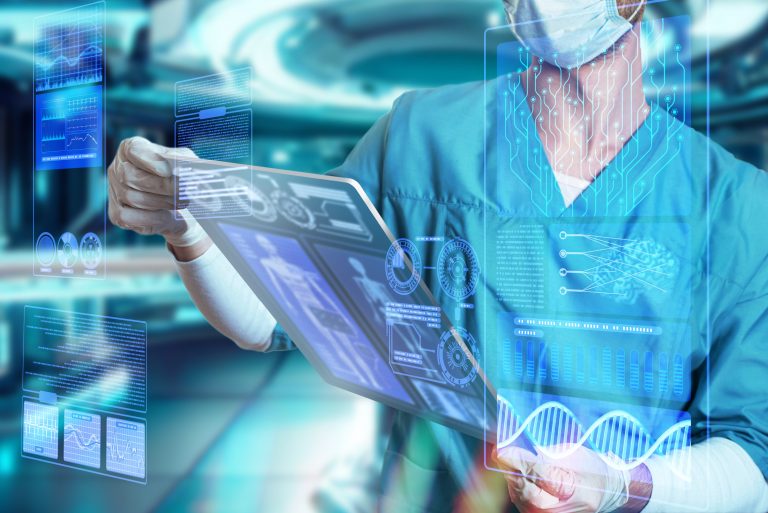AI in Healthcare: Revolutionizing Diagnosis, Treatment, and Patient Care”

Muhammad Naeem
Over the past few years, the rapid advancement of Artificial Intelligence (AI) has led to groundbreaking applications in various fields, with the healthcare sector being no exception. The integration of AI in healthcare has brought about a profound transformation in how medical professionals approach patient care, diagnosis, and treatment, promising even more remarkable developments in the future.
One of the most significant contributions of AI in healthcare is its ability to unearth novel connections between genetic codes, enabling researchers to better understand the genetic basis of diseases and design more targeted therapies. This newfound knowledge has the potential to revolutionize treatment approaches, leading to more effective and personalized medical interventions.
In the realm of surgery, AI has facilitated robot-assisted procedures, allowing surgeons to perform intricate operations with unprecedented precision and control. This minimally invasive approach reduces risks for patients, shortens recovery times, and enhances surgical outcomes, thus pushing the boundaries of what was once thought possible in the operating room.
Medical imaging techniques have also witnessed a notable improvement with the incorporation of AI. Through sophisticated algorithms, AI can analyze and interpret medical images like X-rays, MRIs, and CT scans swiftly and accurately. By enhancing the accuracy of diagnoses, AI empowers healthcare professionals to identify conditions at earlier stages, leading to timely and more effective treatments.
Administrative tasks, which were often time-consuming and prone to errors, have been streamlined and automated through AI solutions. This allows medical staff to focus more on patient care, reducing administrative burdens and enhancing overall efficiency in healthcare facilities.
Moreover, AI has made personalized treatment options a reality. By analyzing vast amounts of patient data and medical research, AI can suggest tailored treatment plans based on individual patient characteristics and medical history. This level of personalization optimizes patient outcomes and fosters a new era of precision medicine.
With AI-driven diagnostics, medical errors can be significantly reduced, leading to improved patient safety and enhanced preventive care strategies. Early detection of diseases and risk factors allows for proactive measures to be taken, preventing health issues from escalating and improving the overall quality of life for patients.
As AI continues to evolve, the potential for its applications in healthcare seems boundless. This ongoing technological revolution holds the promise of reshaping medicine as we know it, empowering healthcare professionals and benefitting patients in ways that were once unimaginable. Embracing the power of AI, the healthcare industry stands on the brink of an exciting future that will undoubtedly bring about more innovative, life-saving solutions.





